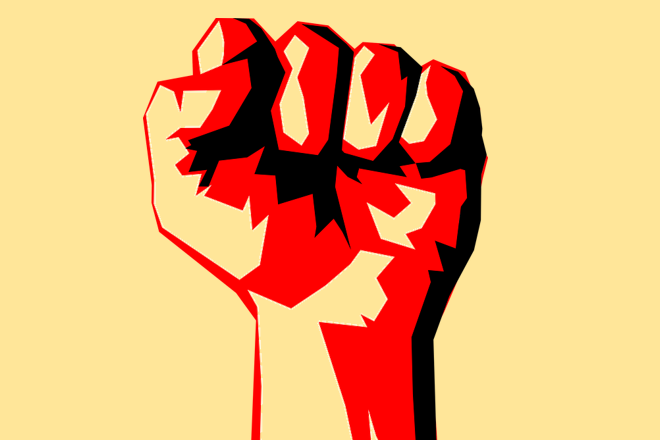Society is what defines us. The way we behave and interact with each other is pivotal in establishing meaningful social connections. Everyone wishes to be part of a civilized and progressive society.
Unfortunately, that is not always possible. Various communities are made up of different thoughts and opinions, some of which contradict each other. At the same time, some members of the population may be indulging in activities that disrupt peace. Therefore there is always a need for social workers and reformers to come along and take charge.
8 Simple Ways to Become a Social Change Maker
Social change-making is all about identifying issues and figuring out ways to solve them. If you’re interested in protecting the social well-being of people, you should go down the socially charged route. However, before you can start solving problems, you need to learn what skill sets you require. Here’s how you can become a social change maker:
Identify where the problem lies
As a social maker, you need to divide the community you wish to work for. Tackling a whole community is not easy. There are so many problems running simultaneously. When you divide the community and collect data, you can identify the possible problem areas. It would help if you prioritized what needs to get worked on first. One project can take several months for results to begin showing. Ensure the project you pick doesn’t take all your attention. You can’t ignore all areas that need work for one task.
Work on your social worker skills
While you may hold a degree in social work, you need specific skills to excel in fieldwork. These can only come to you via experience or additional qualifications. It will help if you follow a social work skills list to deal with different stakeholders. You need to know what you’re doing when you go to meet people. The advice and help you provide will either make or break their life. For example, if you walk into an abusive situation, you need to identify the best way to resolve it. That also includes when you think law enforcement should get involved. Knowing your skills and working on polishing them will enable you to handle such situations without worsening them.
Discuss social issues online
Living in the 21st century has certain perks. You can exchange the information you know with the population. The purpose of sharing is to inform so if people are going through a social crisis, they know what to do. You can notify people on general social issues such as substance abuse and domestic violence. Informing also includes providing the relevant helplines and emergency helplines. You should also teach methods such as copying and escaping the situation as they wait for help. Information is power. The more you provide people with information, the more they’ll know what to do in case of an emergency.
Establish a team for yourself
While you can do social advocacy on your own, you need a team. Social work is multidimensional; many issues require time and attention. If you try tackling everything on your own, it will be challenging to achieve your goals. So when you’re looking for a team, ensure that you hire a diverse group. These people should represent different communities to be able to identify the unique needs of each community. When you collaborate with other NGOs and social workers, you’ll have enough resources to make change happen.
Give Importance to Mental Health
As a social change maker, you can help alleviate the stigma around mental health. Many issues present in our society stem from mental health. These include problems with addiction and even cases of neglect. Mental health issues are often subsided. People ignore them, thinking these conditions hold no relevance. You can discuss these cases by either going on TV and participating in expert talk panels. It would help if you also encouraged professional mental health counselors to talk to the community more often. You are increasing the transparency between counseling and patients, which removes the stigma. If you want mental health issues to get better, you need to shed light on them.
Work with NGOs
NGOs are nonprofit organizations that run private operations. These workers tackle numerous issues at a time that help improve communities. If you work with NGOs, you gain valuable exposure. The exposure will help you learn firsthand what issues are surrounding society. You also understand how long it takes to tackle problems and get work done. It can help you introduce solutions and figure out ways you can make the process faster. Maybe you can ask influencers and celebrities to help give your cause a platform.
Talk to policymakers
It would help if you found out what the state is doing to help people. If you feel they lack in any way, you can assist in drafting a proposal. While you’re discussing with the policymakers, you need to present data that backs up your claim. There could be a lack of facilities such as hospitals. Maybe a community needs more schools and better sanitation. Policymakers are catalysts in ensuring that demands are met and solutions get provided. It would help before you present yourself in front of them you brush up on your confidence. You may also want to make sure that the data you have comes from a reliable source. It will help if you talk to NGOs and even hospitals. You may even need to visit policymakers more than once, so prepare yourself for that.
Go on social media
Social media can act as your call to action. People are using social media for numerous reasons, and social advocacy is one of them. You can include links to all local donation institutes. You can also record videos including areas that need attention and interviews with different professionals.
Your social media page can also include blogs and posts on various topics to spread awareness. You can even ask the local public to talk to you about their community issues. Highlighting the problems is one aspect of your page.
The second aspect of your page is to ensure that you have solutions. It would help if you told the people what they could do. Suppose you’re highlighting problems on litter. You can educate people on how to get rid of their pollution better. These include separate garbage and being mindful of hygiene conditions. Don’t hesitate to use the power of social media to drive change.
Wrap up
Social reformation is a tough job. There are several social issues plaguing society. Unless proper attention is paid to them, they will not get better. You can drive change. Start by informing yourself what problems need your help. It would also help if you brush up on your skills and learn the rules of the job. You will also need to build your team and get in touch with NGOs and policymakers. It would help your cause if you also stood on the front lines and gained experience. Don’t hesitate to reach out to influencers and even leverage social media. You will notice change slowly and gradually, but there will be reform.




